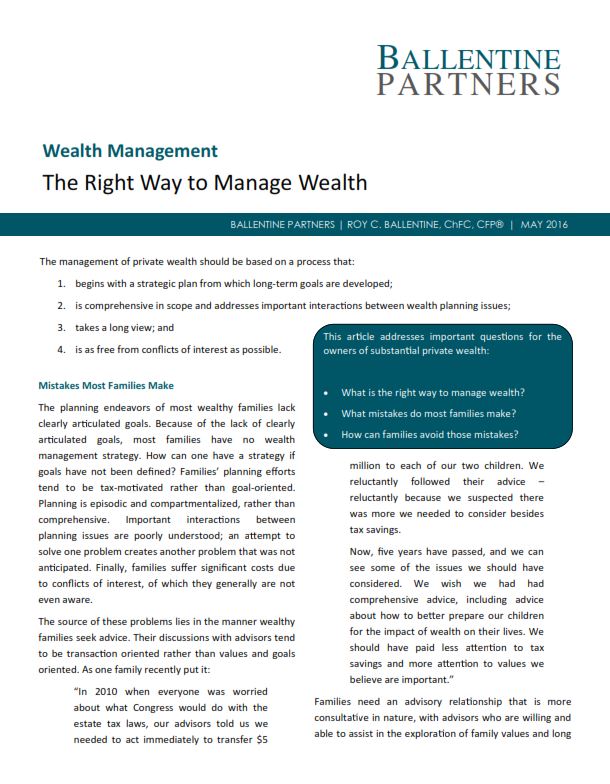This article addresses important questions for the owners of substantial private wealth:
- What is the right way to manage wealth?
- What mistakes do most families make?
- How can families avoid those mistakes?
The management of private wealth should be based on a process that:
- Begins with a strategic plan from which long-term goals are developed;
- Is comprehensive in scope and addresses important interactions between wealth planning issues;
- Takes a long view; and
- Is as free from conflicts of interest as possible.
Mistakes Most Families Make
The planning endeavors of most wealthy families lack clearly articulated goals. Because of the lack of clearly articulated goals, most families have no wealth management strategy. How can one have a strategy if goals have not been defined? Families’ planning efforts tend to be tax-motivated rather than goal-oriented. Planning is episodic and compartmentalized, rather than comprehensive. Important interactions between planning issues are poorly understood; an attempt to solve one problem creates another problem that was not anticipated. Finally, families suffer significant costs due to conflicts of interest, of which they generally are not even aware.
The source of these problems lies in the manner wealthy families seek advice. Their discussions with advisors tend to be transaction oriented rather than values and goals oriented. As one family recently put it:
“In 2010 when everyone was worried about what Congress would do with the estate tax laws, our advisors told us we needed to act immediately to transfer $5 million to each of our two children. We reluctantly followed their advice – reluctantly because we suspected there was more we needed to consider besides tax savings. Now, five years have passed, and we can see some of the issues we should have considered. We wish we had had comprehensive advice, including advice about how to better prepare our children for the impact of wealth on their lives. We should have paid less attention to tax savings and more attention to values we believe are important.”
Families need an advisory relationship that is more consultative in nature, with advisors who are willing and able to assist in the exploration of family values and long term goals. Families should complete this work before committing to any significant transactions that may be difficult to unwind. The family should strive to develop a strategic wealth management plan that is based on shared values and beliefs.





